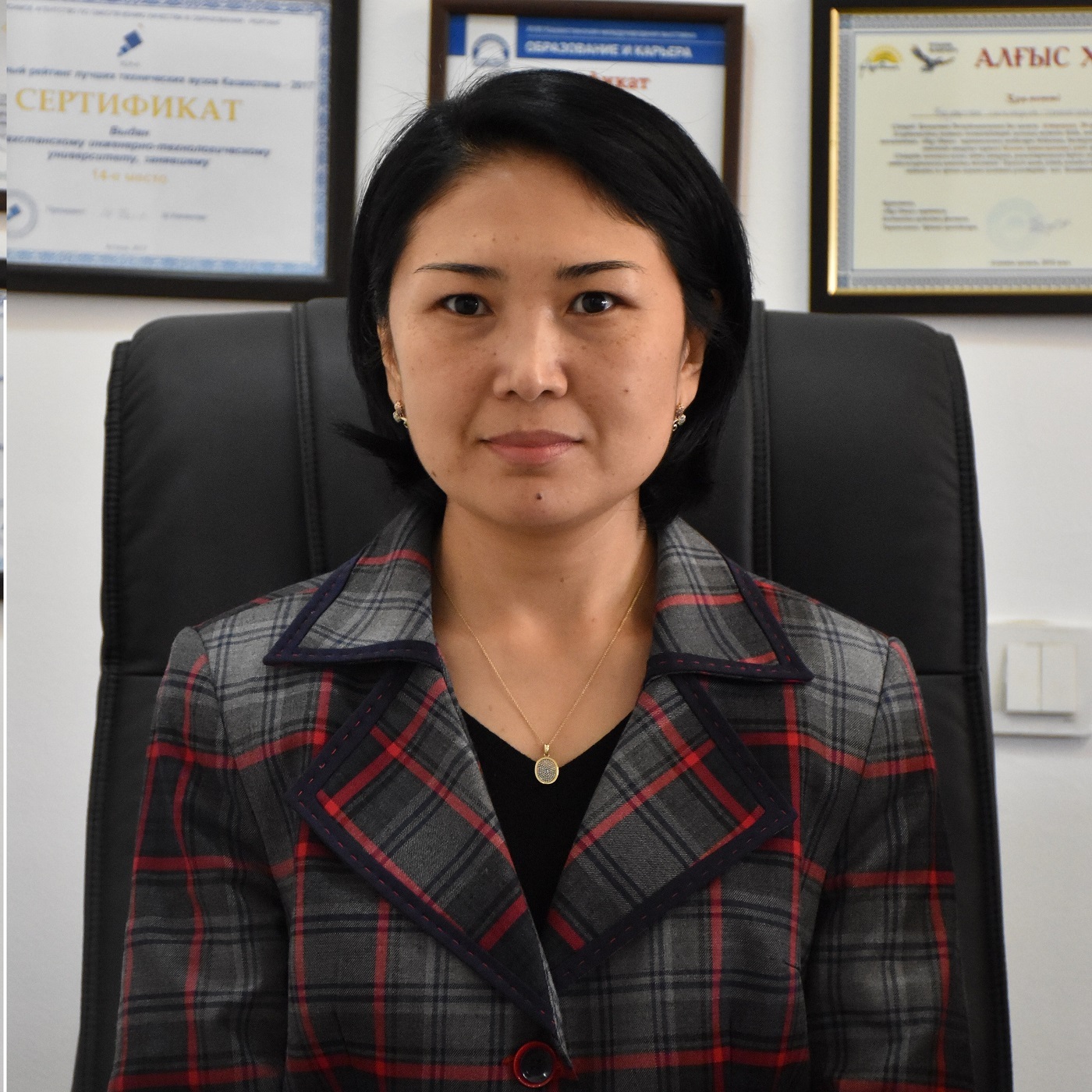
Nurgalieva Rakhilya Tursynzhanovna
Lecturer
The Department of «Smart technologies in engineering»
Master of technical sciences
email: nurgalieva.r@kazetu.edu.kz
- Since September 2003, Nurgaliyeva Rakhilya Tursynzhanovna has been accepted as a teaching assistant at the Academy of Civil Aviation. From 2004 to 2014 she worked as a teacher, senior lecturer at the Academy of Civil Aviation.
- From 2014 to 2017, she worked as a senior lecturer at the Department of Plasma Physics and Computer Physics of the Faculty of Physics and Technology of the Al-Farabi Kazakh National University.
- From 2017 to 2019, she worked as a senior lecturer at the KazATK named after M. Tynyshpaev at the Department of "Electric Power Engineering".
- Since 2019, he has been working at KazETU as a senior lecturer, lecturer.
PROFESSIONAL DEVELOPMENT:
- 2019. courses on the topic: "Innovative technologies used in the educational environment to improve the quality of education", Consulting Company, Almaty.
- In 2019, she completed theoretical training on the topic "Improvement of the integrated management system operating in the organization based on the requirements of ST RK ISO 9001-2016 and ST RK ISO 50001-2012. Training of internal auditors based on the requirements of ISO 19011", Kazakhstan Academy of Quality Management, Almaty.
- 2019. Web programming courses, CODEGURU, Almaty.
- 2021. courses on the topic: "Modern digital regulators used in automatic control systems", Honeywell-ASU LLP, Almaty.
- 2022. Fundamentals of Management courses, University of California Irvine, USA
ADDITIONAL INFORMATION:
- Since 2020 Coordinator of the educational program "Automation and management"
- During the period of work as a teacher, she participated in the work of conducting the UNT and KTA.
1992 - 1996 Republican Physics and Mathematics Boarding School named after O.A. Zhautykov. Certificate of secondary education.
1997 - 2002 K.I. Satpayev Kazakh National Technical University. Electric drive and automation of technological complexes. Qualification: of an electrical engineer.
2002 - 2003 K.I. Satpayev Kazakh National Technical University. Master`s degree in "553550 - Electronic engineering".
Initiative projects:
- Multi-motor asynchronous electric drive with increased synchronizing capacity
- Synchronous electric drive with increased efficiency
Publications
Nurgalieva R.T., Kabdollayeva T.N. "Analysis of cloud technologies of various developments", International scientific and practical conference "Integration of education, science and production: topical issues, achievements and innovations" Almaty, April, 2021.